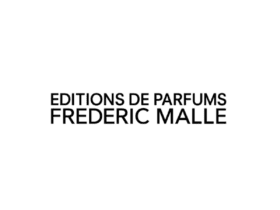Perfume is a delicate blend of various ingredients that together create a unique fragrance. However, the way this scent develops and lingers on your skin can be significantly influenced by external factors like climate and environment. Understanding how these elements affect your perfume can help you choose the right scent for different conditions and ensure you always smell your best.
Temperature and Your Perfume
One of the most significant factors affecting your perfume is temperature. Heat can intensify fragrance notes, making them more prominent, while cold can mute them.
- Warm Climates: In warmer weather, perfumes tend to evaporate faster, making their top notes more noticeable. However, the heat can also cause the scent to dissipate quickly. Opt for lighter, fresher scents with citrus or floral notes that can be reapplied throughout the day.
- Cold Climates: In cooler weather, fragrances don’t evaporate as quickly, allowing the base notes to become more prominent. Rich, warm scents with notes of vanilla, amber, and spices are ideal for colder climates as they tend to last longer and provide a comforting warmth.
Humidity and Its Impact
Humidity can also play a crucial role in how your perfume behaves. High humidity can amplify the fragrance, making it seem stronger than it would in a drier environment.
- High Humidity: In humid conditions, your skin retains more moisture, which can help the fragrance last longer. However, strong scents can become overpowering. Opt for lighter fragrances that won’t overwhelm your senses.
- Low Humidity: In dry conditions, your skin can become dehydrated, causing the scent to fade faster. To counteract this, moisturize your skin before applying perfume to create a better base for the fragrance.
The Role of Pollution
Urban environments with higher levels of pollution can also affect how your perfume smells. Pollution particles can interact with the fragrance molecules, altering their scent.
- High Pollution: In areas with high pollution, the fragrance can mix with pollutants and create a different scent. Choose more robust perfumes with strong base notes that can withstand these interactions.
- Low Pollution: In cleaner environments, your perfume will remain closer to its intended scent. Delicate and subtle fragrances work well in these conditions as they won’t be affected by external factors.
Adapting Your Perfume Collection
Given these factors, it’s a good idea to have a versatile perfume collection that you can adapt to different climates and environments. Here are some tips:
- Summer: Opt for fresh, light, and citrusy scents.
- Winter: Choose warm, spicy, and woody fragrances.
- Humid Conditions: Go for light, airy perfumes.
- Dry Conditions: Moisturize your skin well and use richer scents.
- Urban Areas: Pick robust fragrances with strong base notes.
Understanding how climate and environment affect your perfume can enhance your fragrance experience. By selecting the right scent for the conditions, you can ensure that your perfume always smells as intended and lasts throughout the day. So, next time you spritz on your favorite fragrance, consider the weather and your surroundings to make the most of your scent.









Leave a Reply